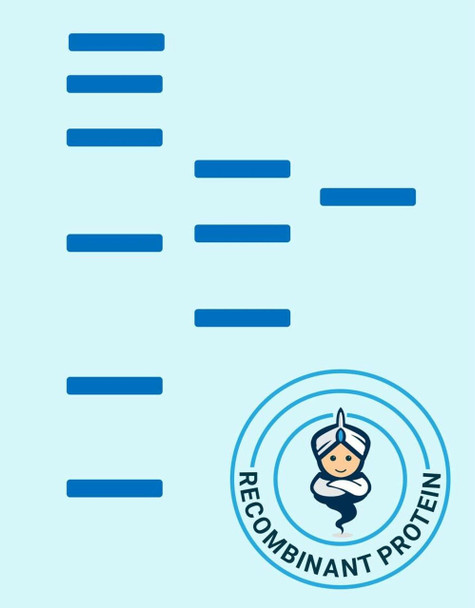Description
| Product Name: | Human CD247/CD3-ZETA Recombinant Protein (His,SUMO) |
| Product Code: | RPES5299 |
| Size: | 20µg |
| Species: | Human |
| Expression Host: | E.coli |
| Synonyms: | CD3-ZETA, CD3H, CD3Q, CD3Z, IMD25, T3Z, TCRZ |
| Mol Mass: | 13 kDa |
| AP Mol Mass: | 13 kDa |
| Tag: | N-His-SUMO |
| Purity: | > 85 % as determined by reducing SDS-PAGE. |
| Endotoxin Level: | Please contact us for more information. |
| Bio Activity: | Testing in progress |
| Sequence: | Arg52-Arg164 |
| Accession: | P20963 |
| Storage: | Generally, lyophilized proteins are stable for up to 12 months when stored at -20 to -80°C. Reconstituted protein solution can be stored at 4-8°C for 2-7 days. Aliquots of reconstituted samples are stable at < -20°C for 3 months. |
| Shipping: | This product is provided as lyophilized powder which is shipped with ice packs. |
| Formulation: | Lyophilized from sterile 20mM Tris-HCl, 150 mM NaCI, 1 mM DTT ( pH 8.0), Mannitol, Proclin300, Tween 80 Normally 5 % - 8 % trehalose, mannitol and 0.01% Tween80 are added as protectants before lyophilization. Please refer to the specific buffer i |
| Reconstitution: | Please refer to the printed manual for detailed information. |
| Background: | CD247, also known as CD3-ZETA, belongs to the CD3Z/FCER1G family. It contains 3 ITAM domains. As a -cell receptor zeta, CD247 forms the T-cell receptor-CD3 complex together with T-cell receptor alpha/beta and gamma/delta heterodimers, and with CD3-gamma, -delta and –epsilon. The zeta chain plays an important role in coupling antigen recognition to several intracellular signal-transduction pathways. Low expression of the antigen results in impaired immune response. Two alternatively spliced transcript variants encoding distinct isoforms have been found for CD247 gene. Defects in CD247 can cause immunodeficiency due to defect in CD3-zeta. An immunological deficiency characterized by T-cells impaired immune response to alloantigens, tetanus toxoid and mitogens. CD247 may play a role in assembly and expression of the TCR complex as well as signal transduction upon antigen triggering. |






